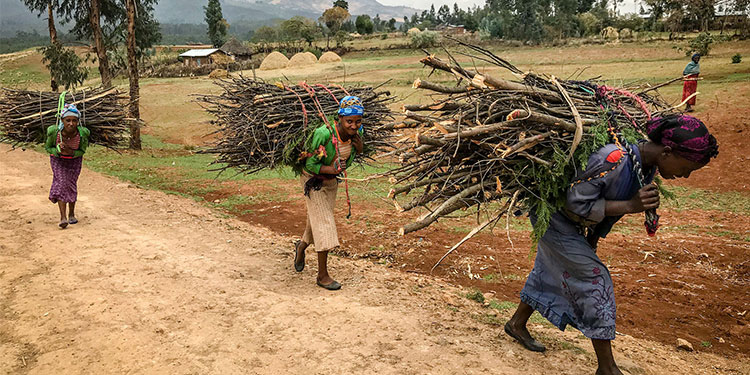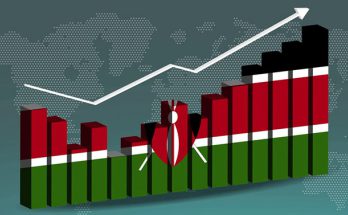 The forestry sector is very important in Sub-Saharan Africa because of its role of subsistence development in rural communities, which gives forestry a large share of the GDP of these countries. The sector also provides significant sources of income and subsistence benefits, creates informal employment opportunities, and serves as a reservoir of economic value that helps to cushion household income shocks, especially in rural areas.
The forestry sector is very important in Sub-Saharan Africa because of its role of subsistence development in rural communities, which gives forestry a large share of the GDP of these countries. The sector also provides significant sources of income and subsistence benefits, creates informal employment opportunities, and serves as a reservoir of economic value that helps to cushion household income shocks, especially in rural areas.
Total wood production in Ethiopia is expected to rise from 100 718 to 107 943 thousand m3. Fuelwood and charcoal production account for about 97 percent of overall wood production outflow, while pine and sawn timber account for just three percent. Forest products in Ethiopia are classified into various subsectors, each of which contributes to the national GDP. Gums and resins, honey, tree seed and seedlings, woodland coffee, spices, bamboo, wood, and medicinal plants are among the subsectors. Timber is the primary raw material used in building, household utensils, and charcoal manufacturing.
Approximately 93 percent of Ethiopian households use biomass fuel as a source of energy. On a daily basis, approximately 7 549 separate sizes and weights of bags of charcoal are sent to Addis Ababa, equating to approximately 68 886 tonnes of charcoal each year. Despite an obvious high demand for and consumption of fuelwood, which has a negative effect on forest cover in the region, the fuelwood sector supports the livelihoods of poor and vulnerable communities, especially women involved in fuelwood collection and trading. For example, over 15 000 urban-based women hold approximately 35% of the capital city’s wood fuel requirements. Fuelwood selection is the sole source of income for 82% of these women.
With about 2.9 million hectares of oleo-gum resin-bearing woodlands and a projected annual output capacity of over 300,000 metric tonnes, the importance of gums and resins to the local economy is important in terms of jobs, income diversification, livestock production, and food security in times of emergency.



